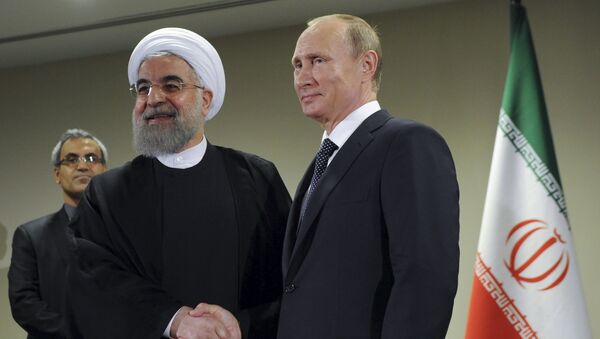“The current instability in the Middle East is reflecting very negatively on the situation in the rest of the world. The region is infested with terrorists from Finland, France, Britain, Russia and Central Asia and this is the new challenge and the new geopolitical reality Iran is facing today,” Mr. Sajjadpour said.
There is also a second group of players, namely Saudi Arabia, Iran and Turkey. The Saudi policy is shortsighted and erratic. Turkey is in political turmoil over its meddling with the crisis in neighboring Syria.
“And last, but not least, it is Daesh, which is both a transnational and internal player,” Seyed Sajjadpour noted.
He described Iran as a strong and influential player, with a high degree of political and social security.
“Millions of Iranians took part in the recent parliamentary elections ensuring a peaceful handover of political power fully in line with the constitution and without violence and conflicts like is often the case with our neighboring countries,” the diplomat said.
He heaped praise on Russia for its role in the settlement of regional conflicts, especially in tandem with Iran.
“We are opening a new chapter in relations between our two countries, which are based on respect for each other’s national identity and independence. Our concerted effort has helped to change the course of the civil war in Syria. Many countries now believe that Russia and Iran can stabilize the situation in the Middle East,” the diplomat emphasized.
When asked whether Moscow and Tehran had different views on who is a terrorist and who is not, Seyed Sajjadpour said: “For us anyone engaged in an armed struggle with the legitimate Syrian government is a terrorist and we see eye to eye with Russia on the need to fight terrorists in Syria… It is our firm belief that it is up to the Syrian people to decide their country’s future.”




